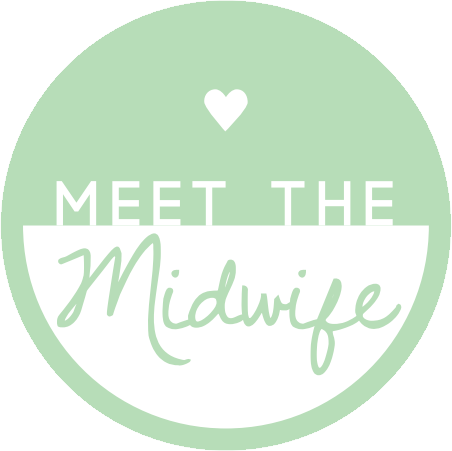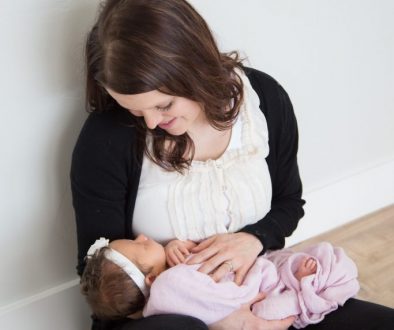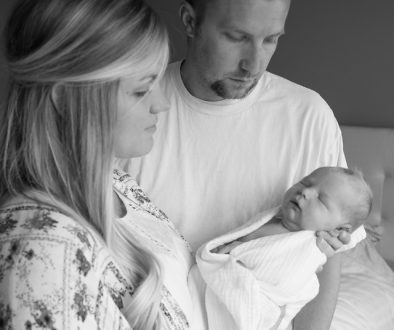Approximately 85% of women will experience a mood disorder before, during, or after pregnancy [1].  Postpartum depression is a disorder that causes an overwhelming feeling of anxiety and/or depression after you give birth to your baby. Many women wonder what causes postpartum depression and if there is anything they can do to prevent it. Postpartum depression does not occur because of something a mother does or does not do. The exact causes of postpartum depression are not well known—it is thought that it is caused by a combination of physical and emotional factors [2].
Postpartum depression is a disorder that causes an overwhelming feeling of anxiety and/or depression after you give birth to your baby. Many women wonder what causes postpartum depression and if there is anything they can do to prevent it. Postpartum depression does not occur because of something a mother does or does not do. The exact causes of postpartum depression are not well known—it is thought that it is caused by a combination of physical and emotional factors [2].
After giving birth, the levels of hormones, specifically estrogen and progesterone in a woman’s body quickly drop to almost nothing. This can lead to chemical changes in her brain that lead to a range of emotions like anxiety, insomnia, and depression. In addition to all the chemical changes new mothers face they are also dealing with sleep deprivation. Rest is vital in the postpartum period especially in helping to fully recover from childbirth. Sleep deprivation, stress, and the role of a new mother can lead to exhaustion, which can contribute to the symptoms of postpartum depression.
Sometimes a mother can feel like they will be looked down on if she expresses how she feels. Women often think this will reflect their ability to be a good mother. The woman will still take fabulous care of their family and this is why it is known as the “unknown/undiagnosed illness.” Postpartum depression can be debilitating and in severe cases lead to death. Today, there are wonderful treatment programs and support groups to help a woman know that they are not alone! Women should never feel embarrassed or ashamed of these feelings—there are many women facing this illness. Recently, a young mother of five children, Emily Dyches, lost her life from the complications of postpartum depression and anxiety. Her husband, Eric Dyches, started a wonderful non-profit organization titled, “The Emily Effect” [3]. This is a great resource to visit.
Your midwife will also be performing routine screening test before, during, and after pregnancy. Signs and symptoms of postpartum depression are listed below:
- Feeling agitated, hopeless, empty, or overwhelmed
- Insomnia, feeling tired but not being able to sleep
- Oversleeping, the constant feeling of being tired
- Irritability, feeling moody, or restless
- Anger, you might lose your temper easily, or feel like you don’t have control of your emotions
- Panic attacks, constantly worrying about situations you are brainstorming in your head
- Thinking about hurting yourself or your baby
- Excessive worrying
- Weight loss, loss of appetite
- Loss of interest in things you once enjoyed
- Women can feel disconnect from their infant or partner
Some important tips that could help you during this time include making sure you are getting enough rest, eating well, ask for help from family and friends, utilize support groups (online or in the community), exercise (even short walks can be beneficial), and do something that has made you happy in the past [5].
Please talk with your midwife if you are experiencing any of these symptoms, we LOVE you and are here to help you. You are not ALONE. Our emotional health is just as important as our physical health. Emotional + physical health are intertwine. Together we can overcome this disorder by effective treatment options and support groups catered for postpartum depression. #youarestrong

Resources
- https://womensmentalhealth.org/specialty-clinics/postpartum-psychiatric-disorders/?doing_wp_cron=1486164654.8663740158081054687500
- https://www.nimh.nih.gov/health/publications/postpartum-depression-facts/index.shtml
- http://theemilyeffect.org/
- http://www.postpartumprogress.com/ppd-support-groups-in-the-u-s-canada
- http://onlinelibrary.wiley.com/doi/10.1111/jmwh.12144/pdf


